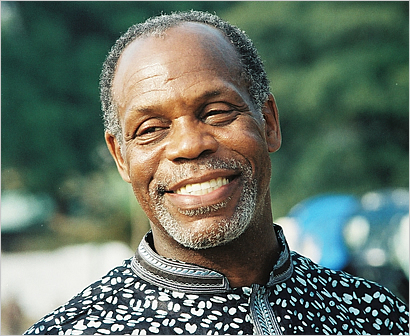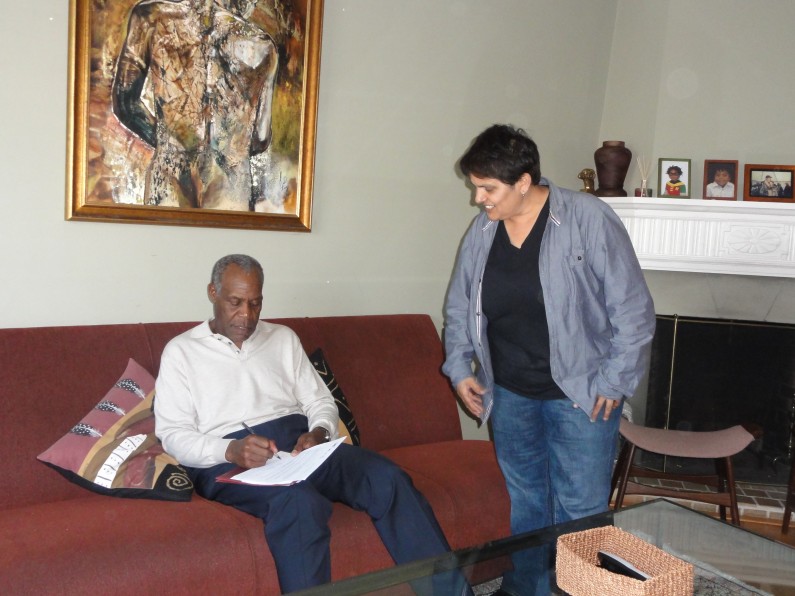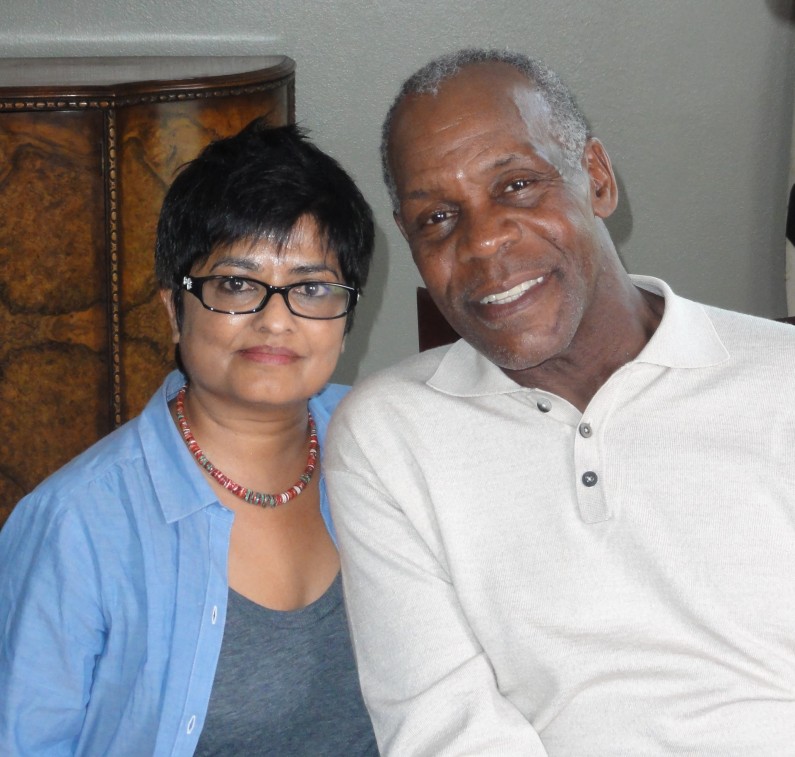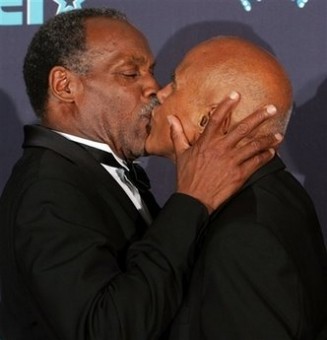It took two years to chase down Mr. Danny Glover for an interview, so finally when the call came; we had 24 hours to organize the crew and equipment. It would have been impossible if we were not already in the Bay Area but as luck would have it here we were/are on the right side of the gaping big Atlantic pond.
Our time with Danny Glover was far more than we could have hoped for. He was erudite, charming and full of stories about his childhood as well as his key role in a student led strike to establish a Department of Black Studies at San Francisco State University back in the 1960s. The strike was the longest one in US history and led to the establishment of the first School of Ethnic Studies in the U.S. He even told us a fascinating story of how he came to be cast in Lethal Weapon with Mel Gibson.
In the movie, The Color Purple directed by Steven Spielberg and based on the Pulitzer Prize winning novel by Alice Walker, Danny Glover played the character of Mr. with incredible depth and artistic nuance. He brought an unforgettable breadth of performance to his character who went through an epic arc – from being brutalized as a young boy by his own father, to becoming a brutalizer to a painful, final moment of redemption.
My Grandmother Was A Feminist
“Whenever you attempt try to tell the story of African-Americans and the diversity of that story, the texture of that story and the historical context of that story, within a film, it’s challenging, yet it is the seminal story in this country’s history.” Danny Glover
Mr. Glover shares with us his grandmother’s reaction when she finally saw the movie on a DVD. She said ‘I’m gonna get a switch after that boy. He knows he was raised better than to act like that.’ His performance was so utterly convincing he had a challenge persuading her that that was ‘not him’ but a character in a movie. So every time he went to visit her after that he went with a switch and she would hit him playfully with that switch. “My grandmother was a feminist so she was not shy about taking that switch to me. She’d say, don’t you run, I’m gonna get you. She got a kick out that. There was something beautiful about it.”
Liberation Movie
“The Color Purple is about liberation, about Celie’s liberation but also Mr’s liberation.” Danny Glover
More than anything else in the movie, Danny Glover’s character of Mr. was the lightening rod for the somewhat ‘toxic” response to the film. Here we had a movie, which for the first time was delving into the difficult, sensitive issues of child abuse, domestic violence and black men’s brutal treatment of black women. Here we also had for the first time a film with an all black cast , actors each and every one of them of stellar abilities who finally had a Hollywood film in which their talent could shine. From my reading and research into the journey of the book to the screen, I have come across nothing but an overwhelming sense of love for the book and the film from all those involved in bringing it to the screen, both behind and in front of the camera.
I particularly enjoyed the conversation when Danny Glover talked about being directed by Steven Spielberg – how he called the ensemble of actors for rehearsals but he, Spielberg, only turned up once in the two week rehearsal period – leaving the actors to hang out and bond as a unit. This became the foundation for the work the actors did on set with each other and their director. “He allowed the ensemble to emerge from our contact with each other and settle in with each other. That was pretty ingenious.” As a voracious consumer of anecdotes about how different directors work with actors and the various strategies actors’ use to ‘stay in the moment’, Danny’s tales from the set of The Color Purple had an enthusiastic audience in me.
Vantage Point of Love
The more he spoke the more evident it became how much Danny Glover has been influenced by the many women in his life including his mother who died tragically in a car accident on the very day Danny received a phone call saying he had been cast in Places of The Heart with Sally Field. He dedicated his work in that film to his mother and in a scene in the film where Sally Fields character is crying, the handkerchief he hands to her, belonged to his own mother. A beautiful gesture born of out of a deep grief and mourning, ensured that his mother’s spirit was with him while he worked.
How did he first come across Alice Walker’s writings, I asked him. “My former wife, Asaki was responsible for me reading Black women writers and that’s how I came to read everything by Alice Walker, Toni Morrison and many other women writers. A characteristic of black women’s writings was that they could be more truthful about me, that is black men, than we could and I found that to be fascinating. Their writings have allowed me to see myself. There is honesty and there is love, they write from the vantage point of loving us”
It’s easy to see why once you have encountered the charming Mr. Glover.



